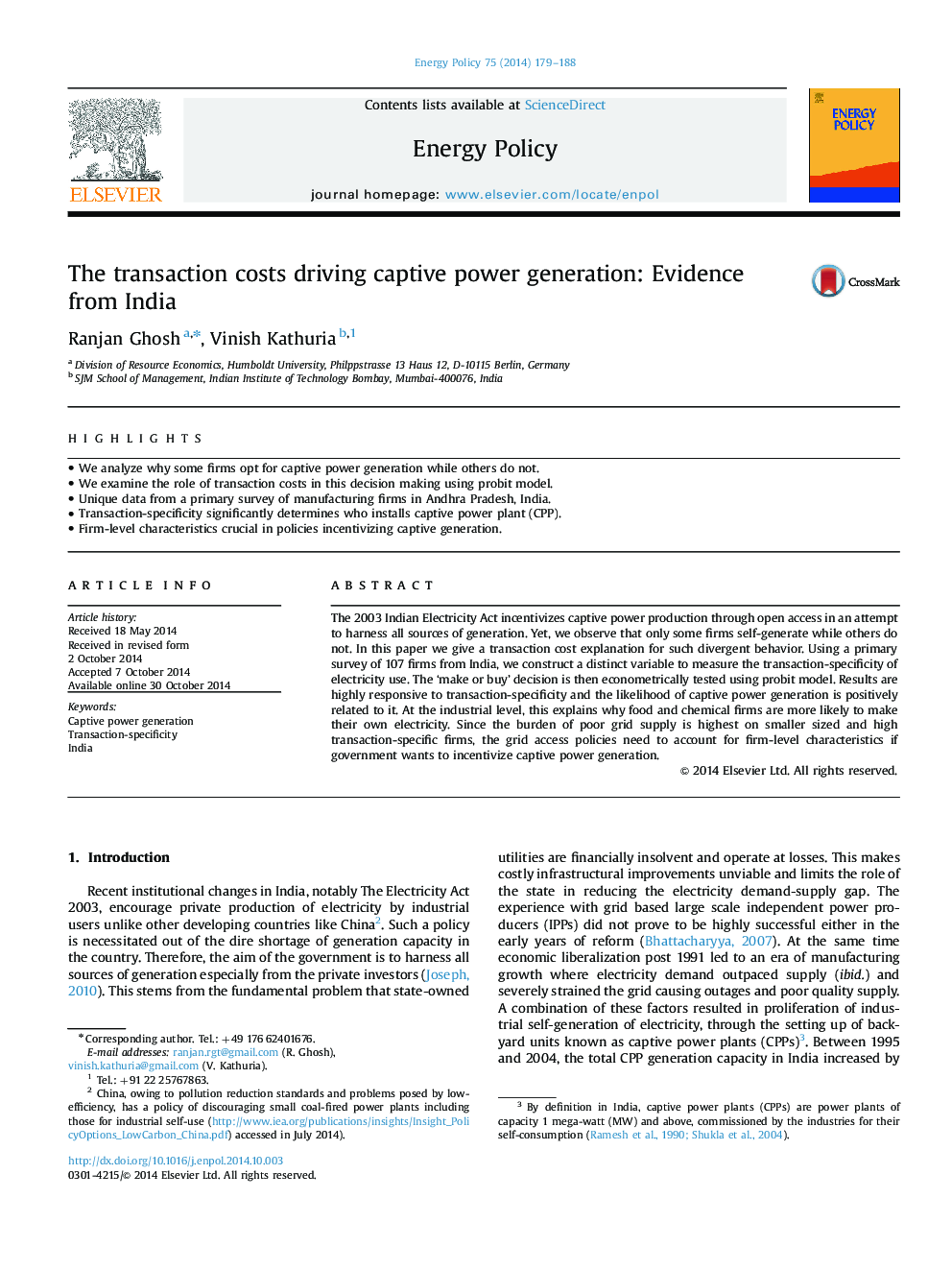| Article ID | Journal | Published Year | Pages | File Type |
|---|---|---|---|---|
| 7401422 | Energy Policy | 2014 | 10 Pages |
Abstract
The 2003 Indian Electricity Act incentivizes captive power production through open access in an attempt to harness all sources of generation. Yet, we observe that only some firms self-generate while others do not. In this paper we give a transaction cost explanation for such divergent behavior. Using a primary survey of 107 firms from India, we construct a distinct variable to measure the transaction-specificity of electricity use. The 'make or buy' decision is then econometrically tested using probit model. Results are highly responsive to transaction-specificity and the likelihood of captive power generation is positively related to it. At the industrial level, this explains why food and chemical firms are more likely to make their own electricity. Since the burden of poor grid supply is highest on smaller sized and high transaction-specific firms, the grid access policies need to account for firm-level characteristics if government wants to incentivize captive power generation.
Keywords
Related Topics
Physical Sciences and Engineering
Energy
Energy Engineering and Power Technology
Authors
Ranjan Ghosh, Vinish Kathuria,
